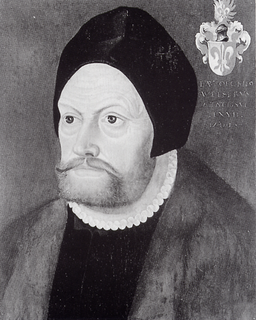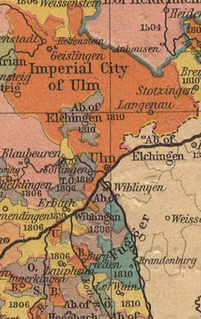
Fugger is a German family that was historically a prominent group of European bankers, members of the fifteenth- and sixteenth-century mercantile patriciate of Augsburg, international mercantile bankers, and venture capitalists. Alongside the Welser family, the Fugger family controlled much of the European economy in the sixteenth century and accumulated enormous wealth. The Fuggers held a near monopoly on the European copper market.

Amandus Augustus Abendroth was a German jurist and mayor of Hamburg.

Ferdinand II, Archduke of Further Austria was ruler of Further Austria including Tirol. The son of Ferdinand I, Holy Roman Emperor, he was married to Philippine Welser in his first marriage. In his second marriage to Anna Juliana Gonzaga, he was the father of Anna of Tyrol, the would-be Holy Roman Empress.

Caspar Voght, later Caspar Reichsfreiherr von Voght, was a German merchant and social reformer from Hamburg. Together with his business partner and friend Georg Heinrich Sieveking he led one of the largest trading firms in Hamburg during the second half of the 18th Century. On numerous trade trips, he completely crossed the European continent. One of his greatest achievements was reforming the welfare system of Hamburg. From 1785 he dedicated himself to strengthening agricultural and horticultural projects and built a model agricultural community in Flottbek, close to the gates of Hamburg.

Klein-Venedig was the most significant territory of the German colonization of the Americas, from 1528 to 1546, in which the Welser banking family of the Free Imperial City of Augsburg obtained colonial rights in the Province of Venezuela in return for debts owed by Charles I of Spain. The primary motivation was the search for the legendary golden city of El Dorado. The venture was led at first by Ambrosius Ehinger, who founded Maracaibo in 1529. After the deaths of Ehinger (1533) and then his successor Georg von Speyer (1540), Philipp von Hutten continued exploration in the interior, and in his absence from the capital of the province the crown of Spain claimed the right to appoint the governor. On Hutten's return to the capital, Santa Ana de Coro, in 1546, the Spanish governor Juan de Carvajal had von Hutten and Bartholomeus VI. Welser executed. King Charles I revoked Welser's charter.
The family of Höchstetter from Höchstädt in western Bavaria near the banks of the Danube were members of the fifteenth and sixteenth-century mercantile patriciate of Augsburg.

Jenisch House (Jenisch-Haus) is a country house in Hamburg built in the 19th century and an example of Hanseatic lifestyle and neoclassical architecture. As of 2008, Jenisch House is the home of the Museum für Kunst und Kultur an der Elbe. It is located within the Jenisch park in the Othmarschen quarter.

Joh. Berenberg, Gossler & Co. KG, commonly known as Berenberg Bank and also branded as simply Berenberg, is a Hamburg-based multinational full-service investment bank. It was founded by the Flemish-origined Berenberg family in 1590 and is the world's oldest merchant bank and also the world's oldest or second oldest bank, depending on the definition. Its owners, the Berenberg/Gossler family, belonged to the ruling elite of Hanseatic merchants of the city-republic of Hamburg and several family members served in the city-state's government from 1735. Like many other merchant bankers, the Berenbergs were originally cloth merchants. The bank's name refers to Johann Berenberg and his son-in-law Johann Hinrich Gossler, and has remained unchanged since 1791. The bank has operated continuously since 1590 and is still part-owned by members of the Berenberg-Gossler family.
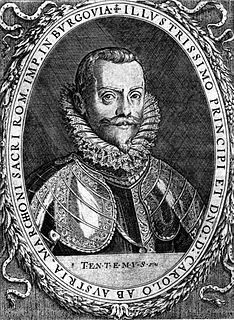
Charles, Margrave of Burgau, also known as Charles of Austria,, was the son of Archduke Ferdinand II of Austria and his first morganatic marriage to Philippine Welser. He was the brother of Andrew of Austria.
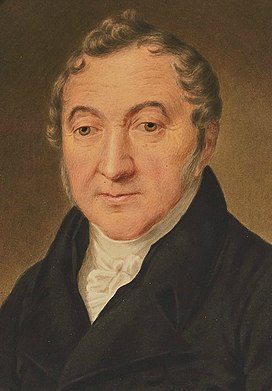
Ludwig Erdwin Seyler was a Hamburg banker, merchant and politician. He was by marriage a member of the Hanseatic Berenberg banking dynasty, and was a partner in the Hamburg firm Joh. Berenberg, Gossler & Co. for 48 years (1788–1836), for 46 years as the company's senior partner. Seyler was one of the first merchants and bankers from modern Germany to establish trade relations with the United States and East Asia. He served as a member of the government of Hamburg during the Napoleonic Wars and later as the President of the Commercial Deputation, one of the city-state's main political bodies, and as a member of the Hamburg Parliament. Ludwig Seyler was a son of the Swiss-born theatre director Abel Seyler and a son-in-law of the bankers Johann Hinrich Gossler and Elisabeth Berenberg through his marriage to their eldest daughter Anna Henriette Gossler.

The Berenberg family was a Flemish-origined Hanseatic family of merchants, bankers and senators in Hamburg, with branches in London, Livorno and other European cities. The family was descended from the brothers Hans and Paul Berenberg from Antwerp, who came as Protestant refugees to the city-republic of Hamburg following the Fall of Antwerp in 1585 and who established what is now Berenberg Bank in Hamburg in 1590. The Berenbergs were originally cloth merchants and became involved in merchant banking in the 16th century. Having existed continuously since 1590, Berenberg Bank is the world's oldest surviving merchant bank.

Amsinck is a Dutch-origined patrician family whose members were prominent merchants in multiple countries including the Netherlands, Hamburg, Portugal, England, France, Hanover, Holstein, Denmark, Suriname and India. From the 17th century the Hamburg branch of the family formed part of the city-state's ruling class, the Hanseaten or hereditary grand burghers, who enjoyed legal privileges in Hamburg until 1918. Amsinck has been one of Hamburg's great business families over many centuries, and its members reached the highest positions in Hamburg society, including as senators and head of state. A branch of the family were large plantation owners in Suriname. The Hamburg branch retained a Dutch identity for centuries, often intermarrying with other Dutch-origined patrician families.
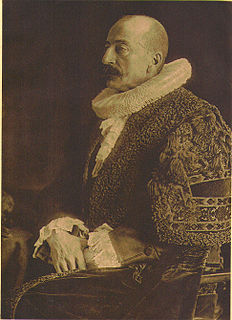
Johann Heinrich Burchard was a Hamburg lawyer and politician who served as senator and First Mayor and President of the Senate of the Free and Hanseatic City of Hamburg.

Elisabeth Berenberg was a Hamburg heiress, merchant banker and a member of the Berenberg family. She was the last male line member of the Flemish-origined Hanseatic Berenberg family in Hamburg, and ancestral mother of the von Berenberg-Gossler family, the current owners of Berenberg Bank. She is also noted as the only woman ever to serve as a partner and take an active leadership role (1790–1800) at Berenberg Bank since the company was established in 1590 by her family.
Rudolf Capell was a German historian, linguist and pedagogue. He was renowned internationally as one of the great learned men of his time.

Johann Berenberg was a Hamburg merchant banker. He was a co-owner of Berenberg Bank from 1748, with his brother, senator Paul Berenberg, and after the latter's death in 1768 the sole owner. The bank still bears his name. He was also noted as an art collector and held several public offices in the city-state of Hamburg.
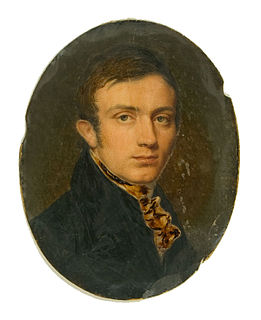
Johannes Amsinck was a German businessman and philanthropist.
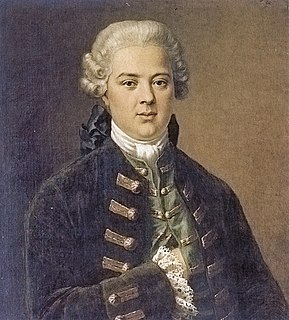
The Gossler family, including the Berenberg-Gossler branch, is a Hanseatic and partially noble banking family from Hamburg.





